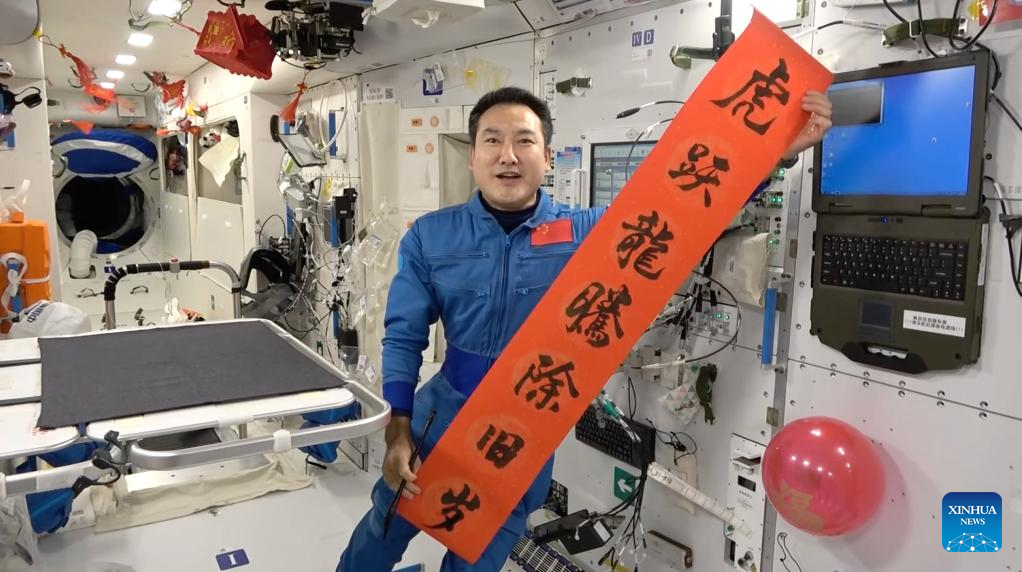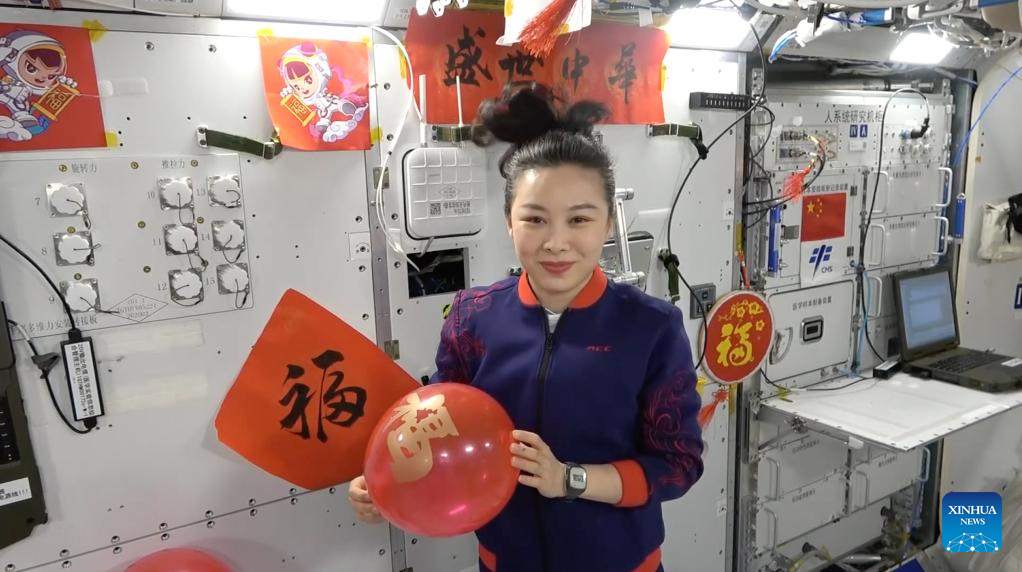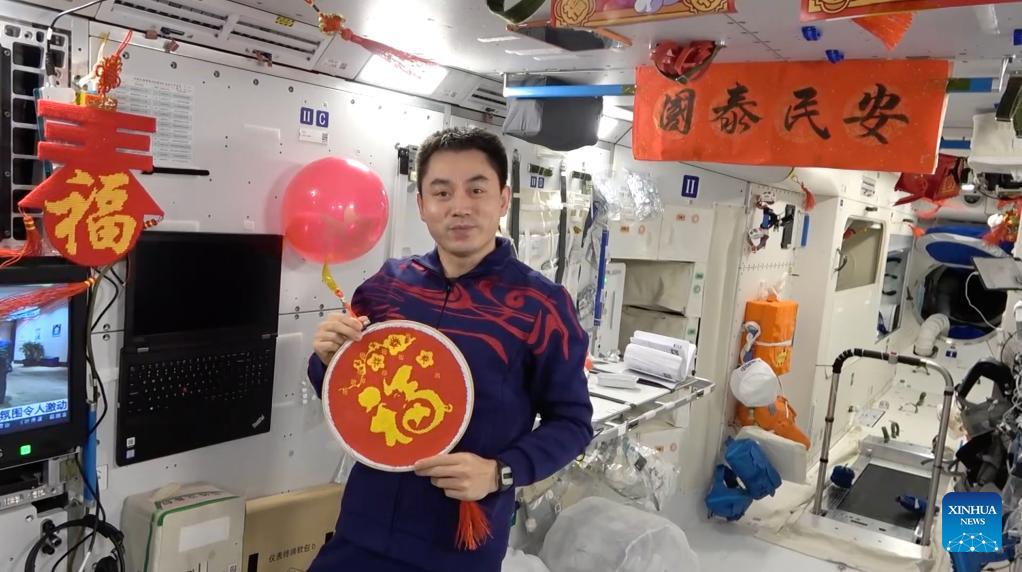Shenzhou-13 crew members became the first Chinese to spend the nation's most important festival -- the Chinese Lunar New Year -- in outer space.
Onboard China's space station core module, about 400 km above the Earth, taikonauts Zhai Zhigang, Wang Yaping and Ye Guangfu extended their Spring Festival greetings in a video released by China Manned Space Agency on New Year's eve.
They wished the motherland and all Chinese people prosperity.
Commander Zhai, a Chinese calligraphy afficionado, while displaying a pair of couplets said: "I wish all of you good health and good luck in everything you do."

Dressed in festive costumes, Wang, with a red balloon in hand, wished children across the country "vigorous and healthy growth."

Ye held a sticker with the Chinese character "fu," meaning good luck, and wished the Chinese people "a happy Lunar New Year and a happy family."

Though far from home, the festival sentiments are the same. The taikonauts have decorated the orbiting core module with red lanterns, Chinese knots and paper-cut craft.
The three will also enjoy the traditions they usually share with their families on Earth -- eating dumplings, wearing new clothes and pasting spring couplets on walls.
The taikonauts will eat dumplings with three kinds of stuffing: pork and cabbage, Spanish mackerel and daylily.
On Oct. 16, 2021, the Shenzhou-13 mission sent the three taikonauts into the space station, for a six-month stay -- the longest-ever duration in the country's manned space program.
They have been in orbit for more than 100 days, completing multiple tasks over the past three months, including performing two spacewalks, a live science lecture and a manual rendezvous and docking test with the Tianzhou-2 cargo vessel.
Zhai and Wang have set records for the most number of days living and working in space by a Chinese man and woman respectively, and will hold the records until at least 2023.
China will complete the building of its space station in 2022, and in the future, more Chinese people will have New Year celebrations and enjoy the Spring Festival in space.





